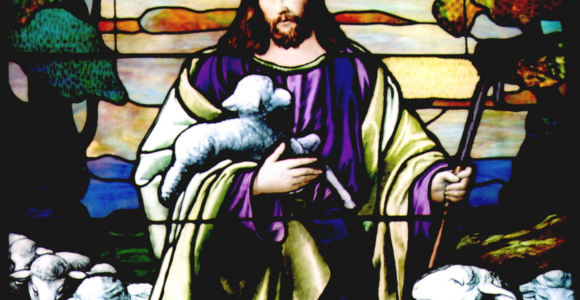
Again, in the Hebrew prophetic justice tradition, the shepherd brings social healing and teaches us the way of life: the path of love for one another where each of us makes sure we all have what we need.
Welcome Readers! Please subscribe to Social Jesus Here.
(Read this series from the beginning at Part 1 and Part 2.)
In our reading this week, John’s gospel describes Jesus as a shepherd who is personally invested in the well-being of the sheep, more than a “hired worker” would be.
This Jesus also names “sheep of other folds” who are part of the restoration of paradise. I think the immediate meaning of this label is other Jesus communities that existed at the time the gospel was written, not just the Jesus community that recognized the apostleship of John, but also those who honored the apostleships of Mary Magdalene, Peter, and Thomas. John’s gospels does a good job here and in chapter 20 of making the Jesus movement tent big enough for each community. It was a time of development in the early church when some communities were competing with others for power, deeming themselves as the genuine Jesus community and other Jesus communities as less-than. Some churches today similarly claim to be the true church with other churches being some kind of counterfeit. And some religions seek to establish themselves as the only legitimate way to access the Divine rather than looking for the universal wisdom or the unique life-giving wisdom faith traditions have to offer to all of us. “Other sheep not of this fold” who belong just as much as us and to whom we are connected is a much more life-giving way to look at others in our world.
But John’s imagery of Jesus as shepherd still ends with a cross. In true Johannine fashion, the death of Jesus is not characterized as we read in Mark, Matthew, Luke and Acts, as an unjust state execution that is overcome by the resurrection. Here it is a mere portal to life that no one forces on Jesus but that he embraces freely so he might take his life back up again.
I’ve spent a lot of time this Easter critiquing John’s version of the death of Jesus as contrasted with the synoptic gospels and the book of Acts. Here let me just say that the Johannine community’s interpretation of Jesus death, like most of the rest of John’s version of the Jesus story, is different than the synoptics’ version. (For a more detailed critique of interpretations of Jesus’ death that focus on his dying rather than the good news of the resurrection, see For God So Loved the World?)
We may all interpret the events of the Jesus story differently today. But what binds us together is commitment to the way of love, life, and justice as we perceive in the golden rule, the sermon on the mount, and the other ethical teachings and values of the Jesus of our stories. In the end, it’s not about how we read or interpret the supernatural or metaphysical elements of these ancient Jesus stories. The point of all these stories is that we learn again to relate to one another in a way that shapes our shared world into a safe, compassionate, just home for us all.
Are you getting all of RHM’s free resources each week?
Begin each day being inspired toward love, compassion, action, and justice. Free
Sign-Up at:
https://renewedheartministries.com/















